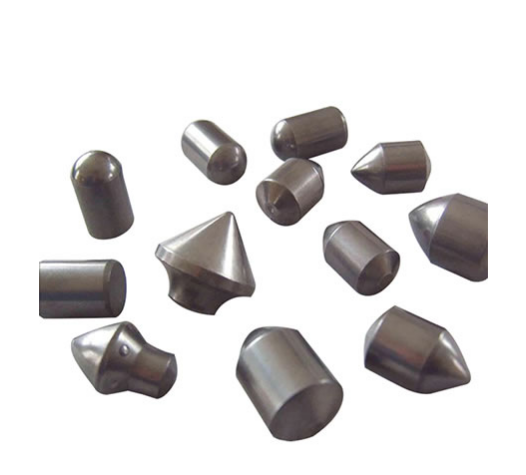Tungsten carbide buttons have outstanding wear resistance and influence toughness with a higher speed of boring and digging. The tungsten carbide button goes through passivating treatment for a 5 to 6 times longer service life than the same drill bit diameter. It saves much time and manual labor, and there are diverse types accessible on the market, including type B, type P, type E, type Q, type S, type Z, etc. They are widely used in oil drilling, mining machinery, snow plow equipment, road maintenance, and coal drill tools and also can performance as a drill portion for heavy-duty rock drill or deep hole drill tools.
This article will help you to know different types of tungsten buttons along with their applications.
Features of Cemented Carbide Mining Buttons
- It has high strength and high hardness.
- It has excellent hardness, high elastic modulus, wear-resistance, high flexural strength.
- Tungsten has good impact resistance and chemical stability (acid, alkali, high-temperature oxidation).
- It has a low coefficient of expansion, good toughness, etc.
Different types of tungsten buttons
In its most basic method, tungsten carbide is present in a fine gray powder. Still, it can be pressed and formed into shapes through sintering in industrial machinery, abrasives, cutting tools, armor-piercing shells, and jewelry. Moreover, there are different types of grades of tungsten. Some of them are listed below with their applications.
· YG4C
There are different grades of tungsten that distinguish them from one another and have various applications. The YG4C has a 15.00 density, 89.05 hardness, and 1800 TRS. They are highly versatile, mainly used for small buttons for percussion bits, and also useful as an insert for rotatory prospecting bits to cut soft, medium, and high formation.
· YG6
The YG6 has a density of 14.08 and 90.00 hardness. They are mainly helpful as the buttons for small and medium-sized percussion bits and rotary prospecting bits’ inserts to cut soft, complex, and medium formations.
· YG9C
The YG9C has a stable density of 14.60 and a tough hardness of 87.00. these are highly versatile tungsten, mainly helpful as the inserts and buttons for coal cutting bits, rotary percussive, and tritone bits to cut medium-hard and rigid formations.
· YG11C
The YG11C is highly versatile tungsten with a density of 14.60 and a higher hardness of 87. It is highly applicable for inserts and buttons and best for rotary [ercussive bits, heavy rock drills, coal cutting bits, and tri-cone bits to cut medium-hard and complex formations.
· YG13C
This grade contains a density of 14.40 and has hardness equals to 86. Chiefly for buttons and tritone bits, rotary percussive bits, and heavy rocks drill bits to cut medium-hard and hard formation.
· YG16
This grade has a density of 14.10 and hardness up to 85.50. it is mainly helpful for making cemented carbide substrate tips used in PDC cutters for excavating coal and oil field PDC bits.
· YG20
The YG2O is a type of tungsten grade with a lower density than other grades 13.70 and has hardness up to 85. They are mainly for the stamping dies used in the considerations of heavy impact load and are stress.

